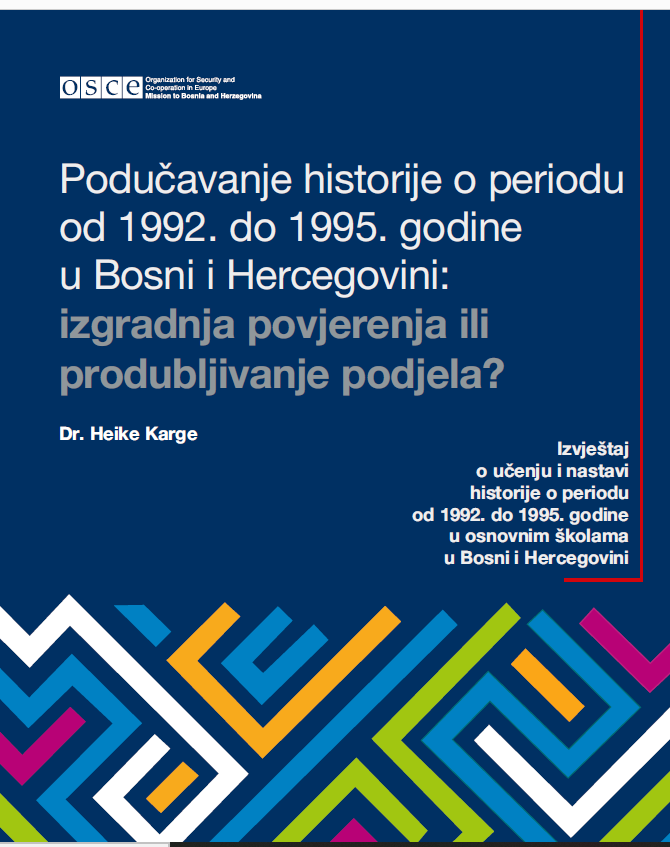OSCE Report “History Teaching Materials on 1992-1995 in Bosnia and Herzegovina: Building Trust or Deepening Divides?” written by Heike Karge
 Photo by Ger Duijzings
Photo by Ger DuijzingsOn 26 April 2023, the OSCE Mission to Bosnia and Herzegovina (BiH) launched a report on learning and teaching practices regarding the history of 1992-1995 in primary schools across Bosnia and Herzegovina
History as a school subject in the 21st century should achieve several goals: it should help to develop historical knowledge but also to critically engage with this knowledge, to enhance understanding of complex political, social, cultural, and economic systems. In post-conflict societies, this can be especially challenging since history is closely tied to emotions and to particular collective identities.
More than ten years after publishing the book “20th Century History in the Textbooks of Bosnia and Herzegovina: An analysis of books used for the final grades of primary school” (2008), Heike Karge has turned her attention once again to the subject and presented the findings of the analysis of content on the 1992-1995 period in BiH. “The purpose of this report is two-fold: to present the results of the analysis on the representation of this sensitive period in teaching materials and the subject of history textbooks currently in use and to suggest ways to teach history that would promote mutual understanding, reconciliation, and sustainable peace in BiH”, Karge stated.
In order to encourage multiperspectivity and critical thinking, Karge has offered five core recommendations, i.a., to acknowledge multiple identities and shared experiences and foster historical empathy toward the ‘other’ and to strengthen teachers’ competencies in cognitive and emotional aspects of teaching and learning sensitive history topics.
You can download the report in English, Bosnian, Croatian and Serbian here.